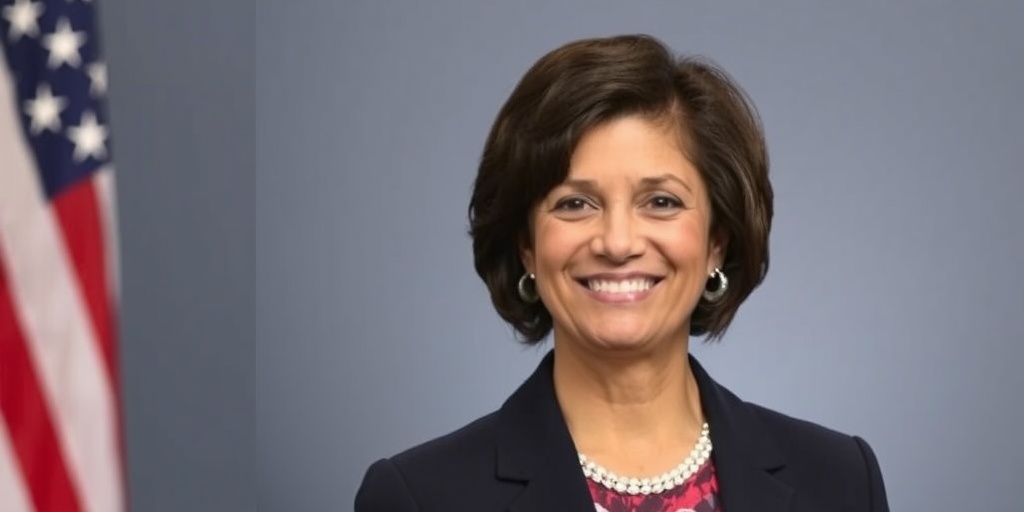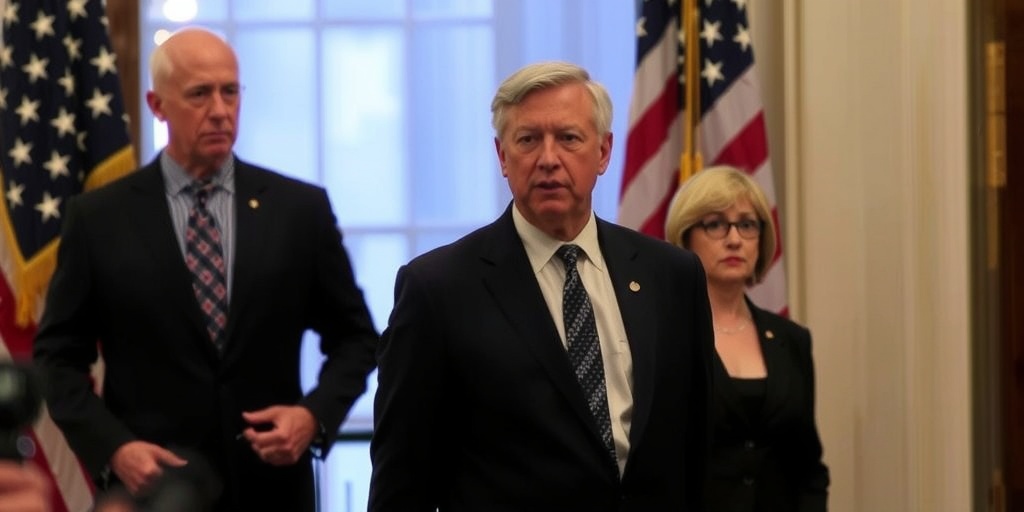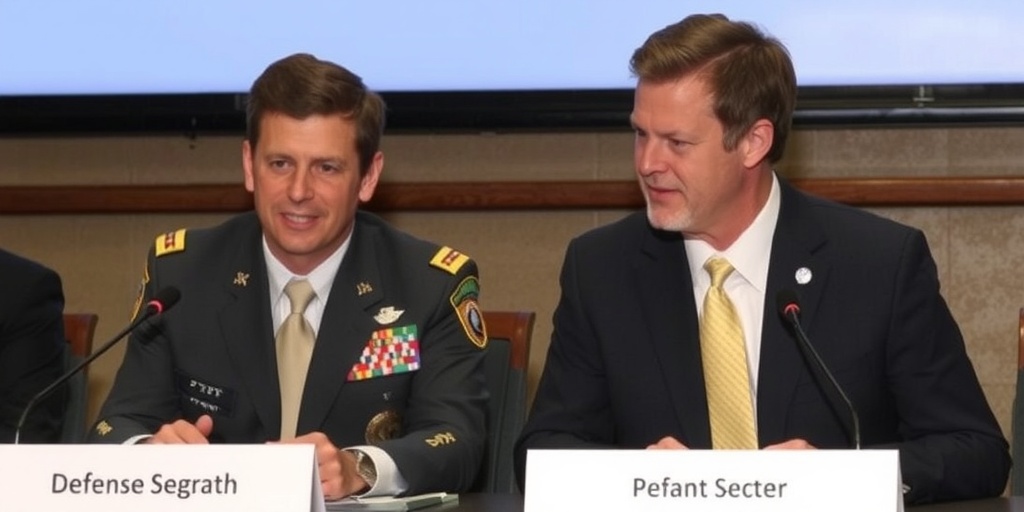Now Reading: Senate Labor Committee Endorses Trump Pick Lori Chavez-DeRemer
-
01
Senate Labor Committee Endorses Trump Pick Lori Chavez-DeRemer
Senate Labor Committee Endorses Trump Pick Lori Chavez-DeRemer

Senate Committee Advances Controversial Labor Secretary Nominee Amid Party Divisions
In a significant development on Thursday, the Senate Health, Education, Labor and Pensions Committee voted to advance President Trump’s nominee for Labor Secretary, Lori Chavez-DeRemer, to a full Senate vote. This decision was marked by some unexpected bipartisan support, underscoring the complexities and divisions within both major political parties when it comes to organized labor issues.
Lori Chavez-DeRemer, a former Republican congresswoman from Oregon, has a history that includes strong endorsements from notable labor organizations, particularly the Teamsters union. During her confirmation hearing held last week, Chavez-DeRemer faced rigorous scrutiny regarding her previous support for labor unions and collective bargaining rights. Senators from both sides of the aisle expressed concerns over her past stances, notably her co-sponsorship of the Protecting the Right to Organize Act, commonly referred to as the PRO Act, which aimed to significantly enhance collective bargaining rights for workers.
The committee’s vote concluded with a narrow margin of 14 to 9, revealing deep intraparty divisions on the issue of labor relations. Notably, Senator Rand Paul of Kentucky was the only Republican to oppose the nomination, emphasizing his longstanding disapproval of the PRO Act. Despite Chavez-DeRemer’s Republican affiliation, three Democratic senators—Tim Kaine of Virginia, Maggie Hassan of New Hampshire, and John Hickenlooper of Colorado—crossed party lines to support her nomination, reflecting their unique viewpoints on her qualifications and potential to lead the Department of Labor.
At the hearing, Chavez-DeRemer attempted to navigate the contentious waters of labor politics. She made a concerted effort to distance herself from her previous support of the PRO Act, emphasizing her commitment to President Trump’s agenda in an attempt to reassure apprehensive Republicans on the committee. Her strategy appeared to be somewhat effective, garnering support from several Democratic members even as she faced skepticism from some of her own party.
However, her alignment with President Trump’s policies did not win over all members of the committee. Senator Bernie Sanders, the ranking minority member and an independent from Vermont, publicly declared his opposition to Chavez-DeRemer. Despite some initial optimism about her nomination, Sanders ultimately couldn’t support a candidate associated with the Trump administration. In a pointed statement released on Thursday, he criticized the administration’s broader implications, stating, “The next secretary of labor, the next secretary of education, the next secretary of housing, the next secretary of the Treasury is Elon Musk. Let us understand that reality and not play along with this charade.” Sanders’s remarks highlight the broader ideological battle within Congress regarding labor rights and the influence of corporate interests in government.
The mood of the confirmation hearing was further intensified by the presence of Teamsters members, who expressed strong support for Chavez-DeRemer. The union’s president, Sean O’Brien, had previously spoken at the Republican National Convention, aligning the Teamsters with Chavez-DeRemer during her candidacy. This backing may have played a crucial role in securing her passage through the initial committee vote, even as her previous positions on labor rights remained a point of contention among senators.
Chavez-DeRemer’s nomination now heads to the full Senate, where it is expected to face a more extensive debate. The upcoming vote will likely be a barometer of the Republican Party’s unity on labor issues, as well as a reflection of Democratic concerns about the potential shift in labor policies under her leadership. As the current political climate continues to evolve, the implications of this vote could resonate beyond the Labor Department, affecting the broader landscape of labor relations in the United States.
The outcome of this nomination process will also signify the trajectory of labor rights and the future of organized labor under a Trump administration. With divisions evident among both Democrats and Republicans, the nomination of Lori Chavez-DeRemer could usher in a new chapter in the ongoing debate over workers’ rights and the role of government in supporting or regulating labor relations. As the full Senate convenes to deliberate, all eyes will be on the potential ramifications, not only for Chavez-DeRemer but also for the millions of American workers affected by labor policies in the years to come.
Stay Informed With the Latest & Most Important News
Previous Post
Next Post
-
 01New technology breakthrough has everyone talking right now
01New technology breakthrough has everyone talking right now -
 02Unbelievable life hack everyone needs to try today
02Unbelievable life hack everyone needs to try today -
 03Fascinating discovery found buried deep beneath the ocean
03Fascinating discovery found buried deep beneath the ocean -
 04Man invents genius device that solves everyday problems
04Man invents genius device that solves everyday problems -
 05Shocking discovery that changes what we know forever
05Shocking discovery that changes what we know forever -
 06Internet goes wild over celebrity’s unexpected fashion choice
06Internet goes wild over celebrity’s unexpected fashion choice -
 07Rare animal sighting stuns scientists and wildlife lovers
07Rare animal sighting stuns scientists and wildlife lovers





















